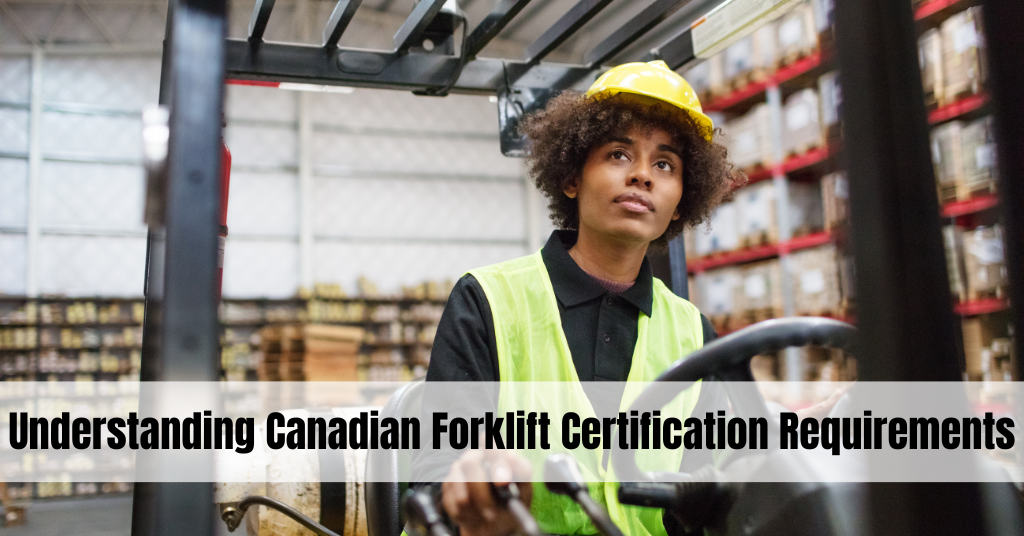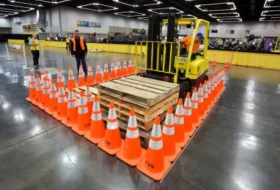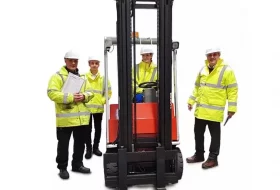In the bustling industrial landscape of Canada, forklifts play a crucial role in ensuring the smooth operation of various businesses. These powerful machines are used for lifting and moving heavy loads, making them an indispensable part of warehouses, manufacturing plants, and distribution centers. However, operating a forklift comes with its own set of risks, making it imperative for operators to undergo proper training and certification. In Canada, adherence to forklift certification requirements is not just a good practice; it is the law.
The Importance of Canadian Forklift Certification
Forklifts are powerful tools, and mishandling them can lead to accidents, injuries, or even fatalities. To mitigate these risks and ensure a safe working environment, the Canadian government has established stringent regulations regarding the operation of forklifts. Forklift certification is not just a formality; it is a legal requirement that helps safeguard both the operators and their workplaces.
The Legal Framework: Forklift Certification Regulations in Canada
In Canada, the regulatory framework for forklift certification is primarily governed by occupational health and safety regulations at the federal and provincial levels. The Canada Labour Code, as well as specific provincial legislation, outlines the necessary steps and requirements for forklift operators to obtain certification.
Federal Regulations:
Under the Canada Labour Code, Part II, forklift operators fall under the jurisdiction of the federal government if they work in federally regulated industries such as transportation, shipping, and telecommunications. For operators in these sectors, compliance with federal regulations is mandatory.
Provincial Regulations:
For industries falling under provincial jurisdiction, specific regulations and requirements may vary from province to province. It is crucial for employers and forklift operators to familiarize themselves with the applicable provincial legislation to ensure compliance.
Key Components of Canadian Forklift Certification
The Canadian forklift certification process typically involves a combination of theoretical knowledge and practical skills assessment. Here are the key components that aspiring forklift operators need to focus on:
1. Formal Training Programs:
Operators must undergo formal training programs offered by certified training providers. These programs cover essential aspects of forklift operation, including safety procedures, equipment maintenance, and load handling techniques. The training is designed to ensure that operators have a comprehensive understanding of forklift operation and safety guidelines.
2. Theory Examination:
After completing the formal training program, operators are required to pass a theory examination. This written test assesses their understanding of the theoretical aspects of forklift operation, including safety regulations, equipment specifications, and workplace hazards.
3. Practical Skills Assessment:
In addition to the theory examination, operators must undergo a practical skills assessment. This hands-on evaluation is conducted to ensure that operators can apply their knowledge in real-world scenarios. Skills such as maneuvering, load handling, and emergency procedures are tested to verify the operator’s ability to operate a forklift safely.
4. Certification Issuance:
Upon successful completion of both the theory examination and practical skills assessment, operators are issued a forklift certification. This certification serves as proof that the operator has met the necessary training and evaluation requirements, making them eligible to operate forklifts in a professional setting.
Continuous Training and Renewal
Forklift certification is not a one-time process; it requires an ongoing commitment to safety and skill enhancement. Canadian regulations mandate that forklift operators undergo refresher training and certification renewal at regular intervals. This ensures that operators stay updated on the latest safety protocols, equipment advancements, and regulatory changes.
1. Refresher Training:
Refresher training is designed to reinforce the knowledge and skills acquired during the initial certification process. It typically covers updates on safety regulations, changes in equipment technology, and any new developments in forklift operation. Employers are responsible for providing refresher training to their forklift operators at appropriate intervals. Forklift training schools like Wisdom Forklift Training offer refresher courses for all kinds of forklifts.
2. Certification Renewal:
Forklift certifications have an expiry date, and operators must renew their certification before it lapses. The renewal process may involve additional training, assessments, or a combination of both. Regular certification renewal ensures that operators remain competent and well-informed in their role.
Employer Responsibilities
While forklift operators have a personal responsibility to obtain and maintain their certification, employers also play a crucial role in ensuring compliance with Canadian forklift certification requirements. Employers are responsible for:
1. Providing Access to Training:
Employers must ensure that their forklift operators have access to certified training programs. This may involve partnering with accredited training providers or establishing an in-house training program that meets regulatory standards.
2. Facilitating Refresher Training:
Employers are obligated to provide refresher training to forklift operators as needed. This proactive approach not only ensures compliance with regulations but also contributes to a culture of continuous improvement and safety awareness within the workplace.
3. Maintaining Certification Records:
Employers must maintain accurate records of forklift operator certifications. This includes documentation of initial training, refresher training, and certification renewals. These records serve as proof of compliance during inspections or audits by regulatory authorities.
Penalties for Non-Compliance
Non-compliance with Canadian forklift certification requirements can result in severe consequences for both operators and employers. Penalties may include fines, workplace shutdowns, and legal liabilities in case of accidents or injuries. Additionally, insurance claims and worker compensation may be jeopardized if forklift operators are not appropriately certified.
Choosing the Right Training Provider
Selecting a reputable and accredited training provider like Wisdom Forklift Training is a important step in ensuring the effectiveness and legitimacy of the forklift certification process. When choosing a training provider, consider the following factors:
1. Accreditation:
Ensure that the training provider is accredited by relevant authorities or industry associations. Accreditation ensures that the training program meets the required standards and is recognized by regulatory bodies.
2. Comprehensive Curriculum:
Look for training programs that offer a comprehensive curriculum covering both theoretical and practical aspects of forklift operation. A well-rounded training program equips operators with the skills and knowledge needed for safe and efficient forklift operations.
3. Experienced Instructors:
Verify that the training instructors have the necessary qualifications and experience in forklift operation and safety. Experienced instructors contribute to the quality of training and provide valuable insights based on real-world scenarios.
4. Ongoing Support:
Choose a training provider that offers ongoing support and resources for both operators and employers. This may include access to updated training materials, assistance with certification renewals, and guidance on staying compliant with changing regulations.
Conclusion
Canadian forklift certification is not just a regulatory requirement; it is a fundamental aspect of ensuring workplace safety and reducing the risk of accidents. Forklift operators and employers alike must prioritize compliance with certification requirements, recognizing it as an investment in the well-being of workers and the efficiency of operations. By understanding and adhering to Canadian forklift certification requirements, businesses can create a safer working environment, enhance productivity, and demonstrate their commitment to responsible and ethical practices in the industrial landscape. Contact Wisdom Forklift Training today to get started with forklift training and certification.







